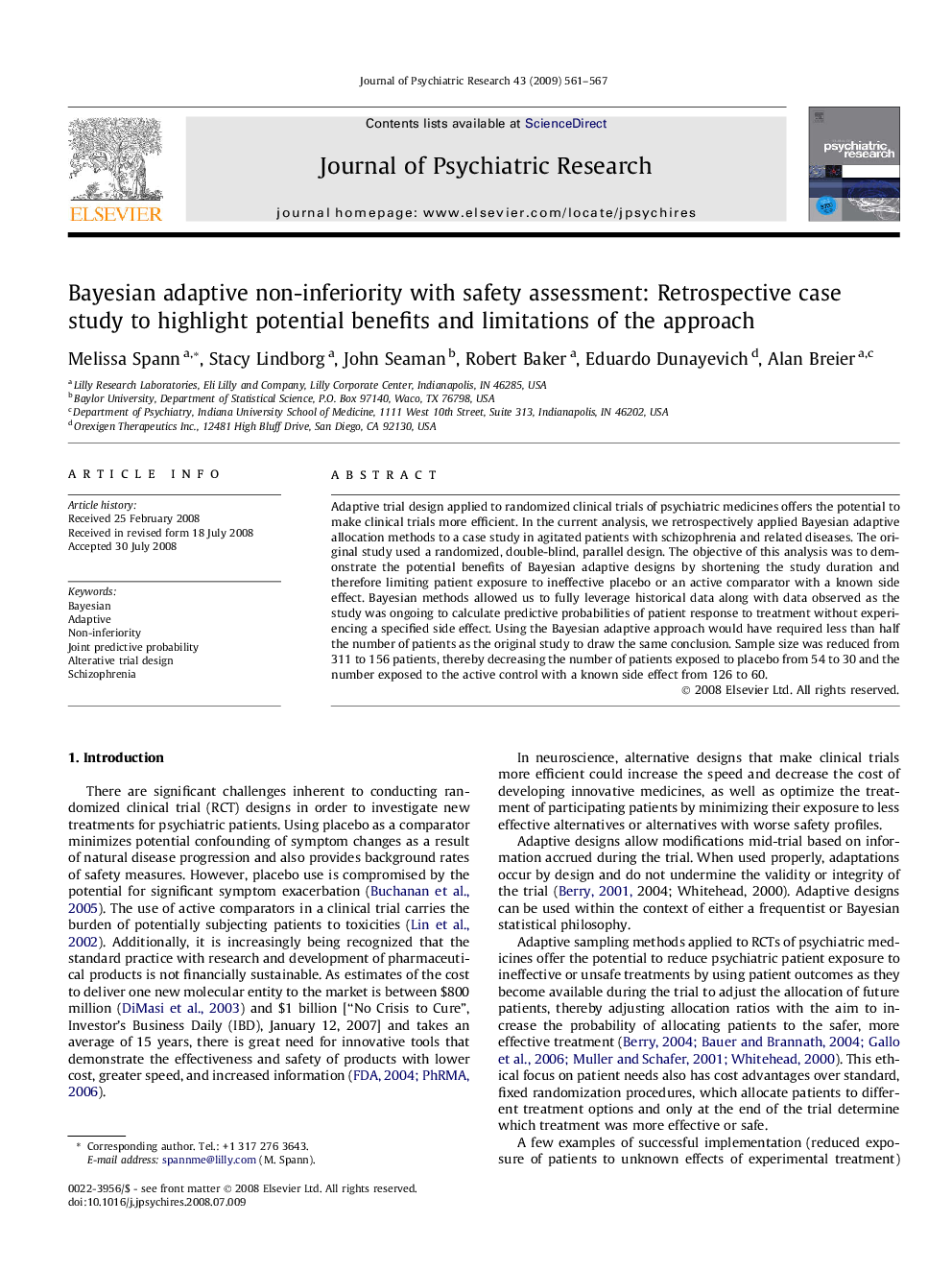| Article ID | Journal | Published Year | Pages | File Type |
|---|---|---|---|---|
| 327827 | Journal of Psychiatric Research | 2009 | 7 Pages |
Adaptive trial design applied to randomized clinical trials of psychiatric medicines offers the potential to make clinical trials more efficient. In the current analysis, we retrospectively applied Bayesian adaptive allocation methods to a case study in agitated patients with schizophrenia and related diseases. The original study used a randomized, double-blind, parallel design. The objective of this analysis was to demonstrate the potential benefits of Bayesian adaptive designs by shortening the study duration and therefore limiting patient exposure to ineffective placebo or an active comparator with a known side effect. Bayesian methods allowed us to fully leverage historical data along with data observed as the study was ongoing to calculate predictive probabilities of patient response to treatment without experiencing a specified side effect. Using the Bayesian adaptive approach would have required less than half the number of patients as the original study to draw the same conclusion. Sample size was reduced from 311 to 156 patients, thereby decreasing the number of patients exposed to placebo from 54 to 30 and the number exposed to the active control with a known side effect from 126 to 60.
